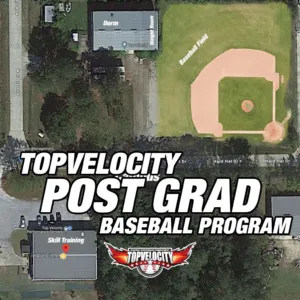 When considering a future in baseball, many aspiring athletes weigh the pros and cons of post-grad programs to advance their skills, network with professionals, and gain exposure to scouts. These programs offer specialized coaching, access to high-quality facilities, and opportunities for competitive play, all of which can be crucial in landing a professional contract or securing a college scholarship. In the excitement of planning a future in the sport, there's one critical issue that often takes a backseat but shouldn't—how much does post grad baseball cost?
When considering a future in baseball, many aspiring athletes weigh the pros and cons of post-grad programs to advance their skills, network with professionals, and gain exposure to scouts. These programs offer specialized coaching, access to high-quality facilities, and opportunities for competitive play, all of which can be crucial in landing a professional contract or securing a college scholarship. In the excitement of planning a future in the sport, there's one critical issue that often takes a backseat but shouldn't—how much does post grad baseball cost?
Understanding the financial commitment involved in post-grad baseball is vital for making an informed decision. This in-depth guide aims to answer that question comprehensively. We'll break down various categories of expenses you can expect, from tuition and training fees to travel and equipment costs. Additionally, we'll offer practical tips for managing these expenditures without compromising the quality of your training. Whether you're a player looking to go pro or a parent supporting your child's baseball dreams, this guide is designed to give you a clear picture of what financial obligations come with taking that next step.
The Importance of Post Grad Baseball Programs
 Why Choose a Post Grad Program?
Why Choose a Post Grad Program?
Emerging athletes can gain a wealth of benefits from post-grad baseball programs, including skill development, increased exposure to scouts, and potential academic advancements. However, these opportunities come with a financial commitment that shouldn't be overlooked. It's crucial to weigh the advantages of these programs against the monetary investment required to make an informed decision about pursuing this path in your baseball career.
Categories of Post Grad Baseball Cost
Understanding where your money goes can give you better control over your budget. The costs can be broadly categorized into tuition, accommodation, equipment, and several other areas.
Accommodation: Post Grad Baseball Cost
On-Campus Vs Off-Campus
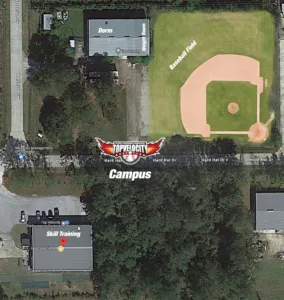
Housing costs can significantly impact the overall expense of post-grad baseball programs. While on-campus accommodation offers the convenience of proximity to training facilities and classrooms, it's often less expensive compared to renting an apartment off-campus. This is because on-campus dorms typically offer limited amenities, helping to keep costs down. On the other hand, off-campus housing may appear to be a cost-saving alternative initially, but the financial burden can rise when you factor in the added costs of daily commuting and the generally higher expense of renting an apartment with more amenities.
Equipment and Uniform: Post Grad Baseball Cost
Brands and Quality
For any baseball player, high-quality gloves, bats, and uniforms are non-negotiable essentials. While brand names and superior quality often come with higher price tags, it's important to prioritize durability over flashy designs. Making this choice ensures a wise investment that will serve you well in both practice and competition.
Training and Coaching Fees: Post Grad Baseball Cost
 Specialized Coaching
Specialized Coaching
While some post-grad baseball programs include specialized coaching in their overall tuition, others may charge extra fees for this valuable service. To maximize the return on your investment, it's advisable to opt for programs that incorporate specialized coaching into their standard tuition costs.
Miscellaneous Post Grad Baseball Cost
Insurance, Medical, Etc.
Miscellaneous costs, such as insurance premiums and unforeseen medical bills, can catch you off guard in your journey through post-grad baseball programs. To prepare for these unexpected financial hurdles, it's wise to maintain a contingency fund that can cover these expenses as they arise.
Loans and Financing: Post Grad Baseball Cost
 Interest Rates
Interest Rates
If you're contemplating taking out a loan to finance your post-grad baseball expenses, it's crucial to compare interest rates and fully grasp the long-term impact on your financial well-being. This will help you make an informed decision that aligns with your budget and future financial plans.
Hidden Post Grad Baseball Cost
Fees You Might Overlook
When planning your budget for a post-grad baseball program, it's easy to overlook smaller expenses like application fees, administrative costs, and even laundry charges. These hidden costs can accumulate quickly, so it's important to be vigilant and factor them into your financial planning to avoid surprises later on.
Is Post Grad Baseball Worth the Investment?
 ROI Analysis
ROI Analysis
Before making the financial commitment to a post-grad baseball program, it's crucial to assess the potential return on investment. This means evaluating how the program could positively impact your future, both in terms of skill development and career opportunities. Consider the salary bump you could potentially receive from a pro contract or the increased chance of securing a college scholarship as a result of the advanced training and exposure to scouts. Also, weigh these benefits against the total cost of the program to determine if it aligns with your long-term goals and is truly worth the financial burden. Taking these factors into account will give you a holistic view of whether the investment in a post-grad baseball program will offer you the advantages you seek in your baseball journey.
Tips to Minimize Post Grad Baseball Cost
When it comes to financing your journey through a post-grad baseball program, it's wise to explore all avenues for potential savings without compromising the quality of your experience. Coupons, for example, can offer valuable discounts on essential gear and training equipment. Early-bird offers are another way to reduce costs, especially when it comes to program registration fees or tuition. Many organizations provide significant discounts for those who commit to their programs well in advance. Bulk-buying is another effective strategy, particularly for items like training balls, nutritional supplements, or even team uniforms, where buying in large quantities can lead to per-item savings. Always keep an eye out for these types of opportunities; subscribing to newsletters or joining specialized sports discount clubs can also tip you off to deals you might otherwise miss. Implementing these cost-saving measures can significantly lessen the financial burden of a post-grad baseball program without sacrificing the quality of your training or experience.
Travel Post Grad Baseball Cost
 Region-Based Analysis
Region-Based Analysis
The geographical location of your chosen post-grad baseball program can play a significant role in influencing your travel expenses. If you're attending a program that's far away from home, you'll likely incur costs for flights, gas, and potentially even lodging during travel days. On the other hand, a program closer to home might only require short car trips, substantially reducing your travel costs. Planning your travel arrangements well in advance can offer you a better selection of cost-effective options, such as discounted airfare or economical lodging. Additionally, consider alternative modes of transportation like buses or carpooling with teammates, which can also help to mitigate expenses. Websites and apps specializing in travel deals can also be valuable resources for finding budget-friendly options. By thinking ahead and exploring various travel alternatives, you can make a significant impact on reducing the overall cost of participating in a post-grad baseball program.
Seasonal Post Grad Baseball Cost
 Spring, Summer, and Fall
Spring, Summer, and Fall
In the world of post-grad baseball, different seasons bring with them unique financial considerations that require careful budgeting. For instance, the off-season might entail costs for indoor training facilities or specialized coaching to refine certain skills, whereas the regular season could see increased expenses in travel, accommodation, and competition entry fees. Even within a single season, costs can fluctuate; tournaments or playoffs often come with additional registration fees and possibly even travel and lodging costs if they're held out-of-town. Plus, there's the seasonal maintenance and replacement of equipment—gloves might need reconditioning, bats might crack, and uniforms may need replacements. You'll also want to consider any seasonal fluctuations in other expenditures like food and nutrition supplements tailored to your training regime. By understanding these seasonal cost variations, you can allocate your budget more effectively, ensuring that you're financially prepared for every aspect of your post-grad baseball experience.
Nutrition and Diet: Post Grad Baseball Cost
 Supplements and Meal Plans
Supplements and Meal Plans
Nutrition is a cornerstone of athletic performance, and for aspiring baseball players in post-grad programs, maintaining a proper diet is non-negotiable. While whole foods should always be the foundation of your diet, the rigorous demands of training and competition often necessitate the inclusion of supplements and specialized meal plans. These can range from protein powders and recovery shakes to vitamin supplements and electrolyte-replenishing beverages. Investing in a professionally designed meal plan can also offer a roadmap to ensure you're fueling your body appropriately for both training and recovery. While these dietary components do add another layer of expense to your budget, they're often critical for a well-rounded approach to athlete development.
Taking into account the intensity and duration of your training sessions, these nutritional investments can improve performance, speed up recovery, and even prevent injuries, offering long-term benefits that can outweigh the immediate financial burden. So while the upfront costs might seem high, consider them an investment in your athletic potential, helping you get the most out of your post-grad baseball experience.
Scouting and Exposure Camps: Post Grad Baseball Cost
 Additional Costs
Additional Costs
Joining scouting camps or exposure events is a strategic move for athletes looking to catch the eye of college scouts and professional coaches, but it's important to recognize that these opportunities usually come with extra costs. These events often require a registration fee, and depending on their location, you may also have to budget for travel, lodging, and meals. On top of that, there's the potential expense for any specialized gear or apparel that may be required for participation.
However, the potential upside can make these costs worthwhile. Such events are hotspots for scouts looking for emerging talent, and performing well in front of the right audience can change the trajectory of your career, potentially leading to scholarships, sponsorship deals, or professional contracts. They not only provide you a platform to showcase your skills but also offer invaluable experiences of competitive environments, helping you understand what you're up against and where you need to improve. Therefore, while scouting camps and exposure events necessitate an additional outlay, they should be considered an investment in your future as a player, offering a valuable return in the form of increased visibility and opportunities within the baseball world.
Parental Expenses: Post Grad Baseball Cost
Time and Money
When calculating the costs of a post-grad baseball program, parents often focus on the obvious expenses like tuition fees, equipment, and travel, overlooking the considerable time and money they will personally invest in supporting their child's baseball journey. This commitment goes beyond just financial aspects; it involves sacrifices in terms of time, energy, and sometimes even career adjustments. Parents may find themselves spending weekends at games, evenings at practices, and significant time coordinating logistics like transportation, meals, and lodging for away games or tournaments.
Additionally, parents often become unofficial coaches, cheerleaders, and emotional support systems, roles that require significant investment in both time and emotional energy. They may also incur incidental expenses, from snacks and refreshments for the team to potential missed work days to attend important games or scouting events. Even small, recurrent costs like gas money for travel to and from practices or games can add up over time. Therefore, it's crucial for parents to factor in these often-overlooked commitments when planning the overall budget for their child's post-grad baseball aspirations. Being realistic about these "hidden costs" can help families prepare more adequately, both financially and emotionally, for the journey ahead.
How to Plan a Budget
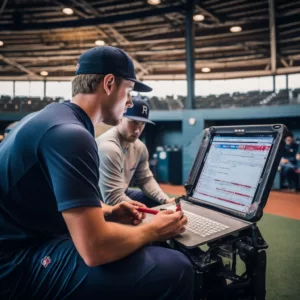 Navigating the financial landscape of post-grad baseball programs can be challenging, but maintaining a well-planned budget can be your lifesaver, helping you avoid the financial strain that many families experience. A detailed budget not only allows you to account for the known expenses, such as tuition, equipment, and travel but also prepares you for the unexpected costs that inevitably arise. This could include things like emergency medical bills, unplanned trips for special training sessions, or even the replacement of lost or damaged equipment.
Navigating the financial landscape of post-grad baseball programs can be challenging, but maintaining a well-planned budget can be your lifesaver, helping you avoid the financial strain that many families experience. A detailed budget not only allows you to account for the known expenses, such as tuition, equipment, and travel but also prepares you for the unexpected costs that inevitably arise. This could include things like emergency medical bills, unplanned trips for special training sessions, or even the replacement of lost or damaged equipment.
In today's digital age, there are a plethora of budgeting apps designed to help you keep meticulous track of your expenses, income, and overall financial health. Many of these apps categorize your spending automatically, provide real-time updates, and even offer personalized advice to help you save money. These tech-savvy solutions can be invaluable for busy parents or athletes who want to manage their finances on the go. However, traditional budgeting methods like using a ledger, spreadsheet, or even a good old-fashioned envelope system can be equally effective, depending on what you're most comfortable with. Whichever method you choose, the key is consistency. Regularly updating your budget allows you to spot trends, manage your cash flow effectively, and make informed decisions that can save you from landing in a financial crunch down the line.
Fundraising Ideas
Financing a post-grad baseball program doesn't have to fall solely on your shoulders or those of your immediate family. From traditional fundraising methods to more contemporary approaches, there are myriad ways to raise funds and even get your community involved in your baseball journey. Bake sales, car washes, and yard sales have been go-to fundraising techniques for years and offer the added benefit of community engagement. These events not only raise money but also increase awareness about your athletic endeavors, potentially leading to other types of support as well.
In the age of technology, you can also go digital with your fundraising efforts. Crowdfunding platforms like GoFundMe and Kickstarter allow you to create a campaign and share your story with a wider audience, including friends, family, and even strangers who may be moved by your passion and commitment. Similarly, leveraging social media can help amplify your message and attract potential sponsors you might not have reached otherwise. You can create dedicated pages or hashtags, post updates on your training and any competitions you participate in, and share links to your crowdfunding page. Another creative avenue is to offer services like private lessons or coaching clinics in your area of expertise, turning your skills into a money-making opportunity that also benefits others.
Furthermore, local businesses may be willing to sponsor you in exchange for some form of advertising, like wearing their logo on your gear or mentioning them in your social media posts. Such partnerships can be mutually beneficial and are often overlooked.
When you involve your community in your fundraising, you're doing more than just asking for money—you're sharing your journey, inspiring others, and even creating a network of supporters who will be invested in your success. A community-centric approach can make the challenging path of post-grad baseball a rewarding experience that extends far beyond the diamond.
How Much Does Post Grad Baseball Cost?
Real Numbers
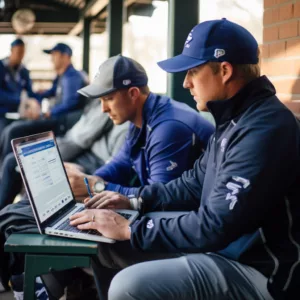 When considering participation in a post-grad baseball program, one of the most pressing questions is often financial: "How much will this cost?" While costs can vary greatly, the average annual expense ranges from $20,000 to $50,000. This is a significant investment, and understanding what contributes to these costs can help you make an informed decision.
When considering participation in a post-grad baseball program, one of the most pressing questions is often financial: "How much will this cost?" While costs can vary greatly, the average annual expense ranges from $20,000 to $50,000. This is a significant investment, and understanding what contributes to these costs can help you make an informed decision.
Location is one of the most significant factors that affect the overall cost. Programs in larger cities or in states with a higher cost of living can naturally demand higher tuition and living expenses. Even within the same city, certain areas may have higher rent for off-campus housing, more expensive grocery stores, and pricier transportation options.
Amenities offered by the program also contribute to the overall cost. Some programs offer state-of-the-art training facilities, advanced analytics, professional coaching, and even meal plans as part of the package. These additions, while valuable for an athlete's development, come with their own price tags. On the other hand, programs with fewer amenities might have lower costs, but this could mean compromising on the quality of training or living conditions.
Reputation and track record also play a significant role in the cost. Programs that have produced successful athletes or have long-standing affiliations with universities or pro teams often command higher fees. You are paying not just for the training, but also for the brand, the connections in the industry, and often, better exposure to scouts and other opportunities.
Moreover, other indirect costs, such as travel for games and tournaments, equipment, and various fees (application, administrative, etc.), can also add up and should be factored into the total cost. Scholarships, financial aid, and fundraising can help offset some of these costs, but it's important to have a clear financial picture before diving in.
Given the considerable range in costs, it's critical to conduct thorough research, evaluate different programs based on your specific needs and circumstances, and plan your budget accordingly. This level of financial commitment should be weighed carefully against the potential benefits, like skill development, exposure to scouts, and academic opportunities, to ensure you're making a wise investment in your future.
High-End Vs Low-End Programs
The cost of post-grad baseball programs can vary significantly, and this range often corresponds with the level of resources, exposure, and amenities you can expect. High-end programs, often ranging in the tens of thousands of dollars per year, typically offer a comprehensive package that may include specialized coaching from industry veterans, state-of-the-art facilities, and enhanced exposure opportunities such as scouting camps and affiliations with collegiate or even professional teams. The investment here is not just in terms of the skill development but also in the connections and opportunities that may open doors for a more promising career in baseball.
On the other end of the spectrum, low-end programs, which can be substantially cheaper, still offer foundational training that shouldn't be overlooked. While they might lack the brand name or the high-profile coaching staff, many of these programs provide adequate facilities for skill development. Moreover, depending on the dedication of the coaching staff and the talent level of the athletes, these programs can still offer a valuable stepping stone for players looking to improve their skills without breaking the bank. In these settings, you may need to be more proactive about seeking exposure opportunities and may not have the same level of amenities or technology at your disposal, but the core coaching and skill development can still be solid. Therefore, when selecting a post-grad baseball program, it's crucial to consider not just the sticker price but what you're actually getting for your investment.
Why Choose TopVelocity Post-Grad Program?
If you're seriously contemplating a career in baseball and want an edge over your competition, the TopVelocity Post-Grad Program is the perfect launchpad for you. Let's dive into why this program should be your top choice.
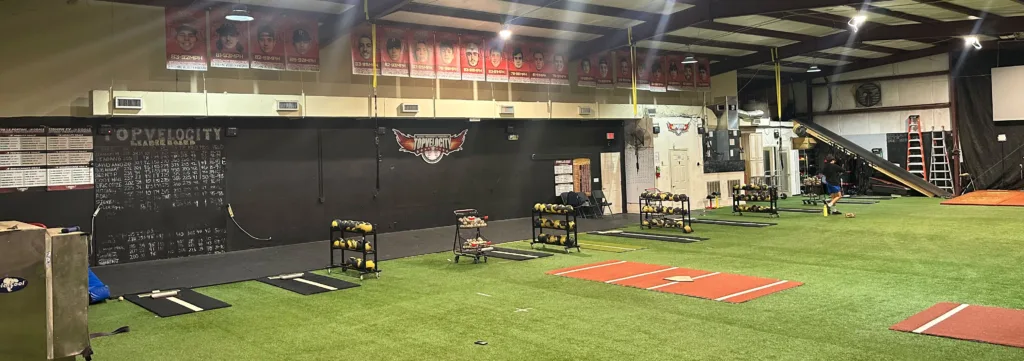
Expertise You Can Trust
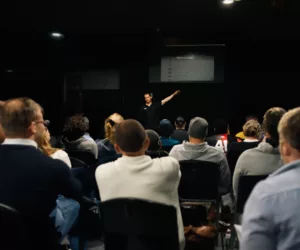 With our program, you're not just getting coaching; you're receiving mentorship from experts who have been in your shoes. Our founder, Brent Pourciau, is a retired professional pitcher who knows exactly what it takes to climb the ladder of success, especially when the odds are stacked against you. With Brent's firsthand experience and a team of dedicated professionals, the program is designed to guide you through your development as a player and as an athlete.
With our program, you're not just getting coaching; you're receiving mentorship from experts who have been in your shoes. Our founder, Brent Pourciau, is a retired professional pitcher who knows exactly what it takes to climb the ladder of success, especially when the odds are stacked against you. With Brent's firsthand experience and a team of dedicated professionals, the program is designed to guide you through your development as a player and as an athlete.
Science-Backed Methods
As a program deeply rooted in kinesiology and sports science, TopVelocity doesn't just rely on traditional methods. We incorporate the latest scientific findings to give you a training regimen that enhances your natural abilities while significantly reducing the risk of injury.
Comprehensive Development
From pitching velocity programs to specialized training for position players and catchers, we cover every aspect of the game. But we don't just stop at athletic training; our program also includes academic advancements, ensuring you are a well-rounded individual ready to tackle any challenge on or off the field.
Unbeatable Return on Investment
The value you get from TopVelocity goes beyond mere skill development. Imagine entering the field with the assurance that you've received the best training available. We equip you not just to play the game, but to understand it, to break it down, and to continuously improve. That level of depth and understanding is what scouts look for and what separates good players from great ones.
Your Future Starts Here
Ready to elevate your game to the next level? Want to give yourself the best shot at a successful career in baseball? Take the step that could define your future. Call 415-877-4850 to get started with the TopVelocity Post-Grad Program today. Don't just dream about a future in baseball—make it a reality with TopVelocity.
FAQs: Post Grad Baseball Cost
- How much does a typical post-grad baseball program cost? The cost of a post-grad baseball program can vary widely, with averages ranging from $20,000 to $50,000 per year. The final cost will depend on various factors such as location, amenities, and reputation.
- What are some hidden costs I should be aware of? Be prepared for application fees, administrative costs, and even laundry expenses. These might not be immediately obvious but can accumulate over time.
- What's the advantage of on-campus housing? On-campus housing generally offers convenience and less commuting time but may lack certain amenities, making it a less expensive option compared to renting an apartment off-campus.
- How can I save money on gear and equipment? Always choose durability over flashy designs when selecting gear like gloves and bats. Keep an eye out for coupons, early-bird offers, and opportunities for bulk buying to minimize costs.
- What's the importance of specialized coaching? Specialized coaching can significantly improve your skills and provide individualized attention. Look for programs that include specialized coaching in their tuition for the best value.
- How can I prepare for unexpected expenses? It's wise to maintain a contingency fund to cover unexpected costs like insurance premiums and medical bills.
- How can I budget effectively? Utilize budgeting apps or traditional methods like spreadsheets to track your expenses and stick to your budget.
- Are there ways to raise funds for my post-grad program? Yes, consider hosting bake sales, utilizing crowdfunding platforms, or involving your community in fundraising events to help cover costs.
- What factors should I consider when calculating return on investment (ROI)? Assess the quality of the program, the potential for increased salary or better exposure levels, and long-term financial implications if you're considering taking a loan.
- Why should I choose the TopVelocity Post-Grad Program? TopVelocity offers a unique blend of expertise, science-backed methods, and comprehensive development. It's not just about athletic training; it's about equipping you for a successful career in baseball. To get started, call 415-877-4850 today.


 Why Choose a Post Grad Program?
Why Choose a Post Grad Program?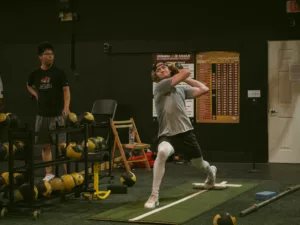 Specialized Coaching
Specialized Coaching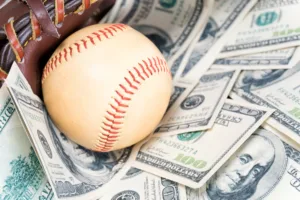 Interest Rates
Interest Rates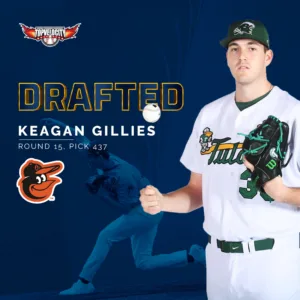 ROI Analysis
ROI Analysis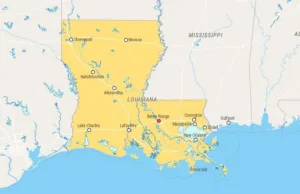 Region-Based Analysis
Region-Based Analysis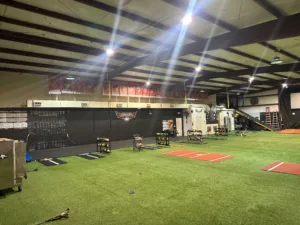 Spring, Summer, and Fall
Spring, Summer, and Fall Supplements and Meal Plans
Supplements and Meal Plans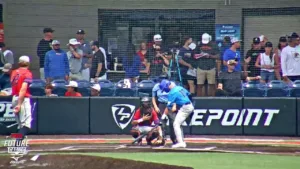 Additional Costs
Additional Costs

Trackbacks/Pingbacks